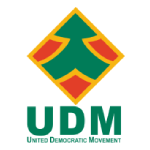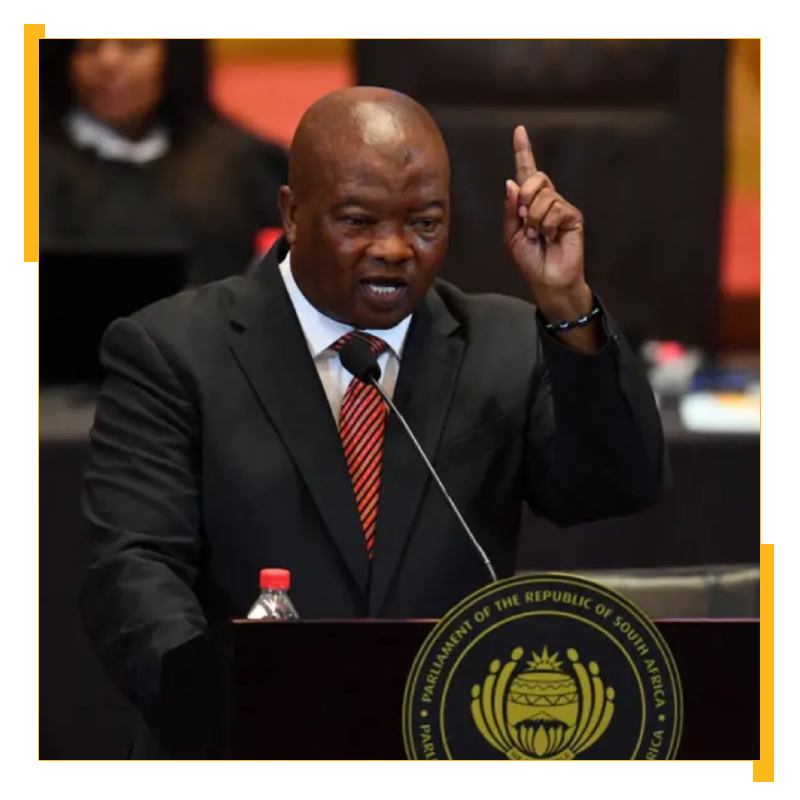



Statement by Bulelani Bobotyane, Provincial Secretary of the UDM in the Eastern Cape It is with profound sorrow that we have learned of the untimely passing of our comrade and leader, Councillor Thobile Benjamin Gidigidi, affectionately known to many as Sir Gidz. On behalf of the United Democratic Movement (UDM) in the Eastern Cape, I extend our deepest condolences to the Gidigidi family, friends, and the broader community of Mnquma. Councillor Gidigidi served the people of Mnquma Local Municipality with unwavering dedication and principled leadership as the UDM’s Chief Whip in Council. His passion for justice, his fearless voice in defence of the marginalised, and his enduring commitment to clean and ethical governance have left an indelible mark on all who had the privilege of working alongside him. Sir Gidz was more than a colleague. He was a brother, a mentor, and a true servant of the people. He brought not only discipline and integrity into Council chambers but also a unique warmth and humour. Who could forget his famous phrase during meetings when trying to keep order and bring focus: “ninganukiselwa yi barbecue sauce.” It was a light-hearted yet firm reminder not to get distracted or prolong debates unnecessarily. It was in these moments that his rare ability to lead with both authority and humanity shone through. As we mourn, we also celebrate a life lived in service of the greater good. May his spirit continue to inspire us to carry forward the ideals he stood for, which include humility, service, and unwavering commitment to the people.

Statement by Zandile Phiri, Acting Secretary General of the United Democratic Movement The United Democratic Movement (UDM) is concerned by the ongoing violence targeting members of the South African Police Service (SAPS). We extend our heartfelt condolences to the family, friends and colleagues of the 31-year-old off-duty officer who was gunned down in Langa, Cape Town. Our police officers play an essential role in maintaining law and order in a country plagued by high levels of violent crime. They are on the front lines every day, responding to emergencies, investigating serious crimes, and confronting dangerous criminal networks, often with limited resources and support. In a society grappling with crime and social instability, their service is not only courageous but indispensable. The murder of police officers, particularly while off duty, reveals the deeply rooted and brazen nature of criminality in South Africa. According to reports, seventeen officers were killed between July and September 2024 alone, with thirteen of those attacks occurring while the victims were off duty. This week, yet another officer was found dead in her police vehicle in Camps Bay under suspicious circumstances, and foul play has not been ruled out. Also of grave concern are the tragic deaths of Constable Cebekhulu Linda, Constable Keamogetswe Buys and Constable Boipelo Senoge, who were reportedly kidnapped and hijacked on 23 April 2025 and later found dead. This deeply unsettling incident raises serious questions about the safety and wellbeing of our police officers. They also highlight the urgent need for transparent, thorough investigations that leave no stone unturned in uncovering the truth. The UDM conveys its deepest condolences to the families, friends, and colleagues of the three constables. We call upon the SAPS leadership to urgently strengthen internal protection measures for officers both on and off duty. The government must increase investment in training, mental health support and the resourcing of police stations, particularly in communities that face severe levels of violent crime. We further call upon civil society to work hand in hand with law enforcement and to foster an environment where the dignity of policing is restored. Criminals must know that our officers are not soft targets and that harming them will bring swift and serious consequences. As a member of the Government of National Unity, the UDM remains committed to strengthening the capacity and safety of the SAPS. We cannot afford to lose more lives, nor can we tolerate a breakdown in the relationship between the public and those who serve them in uniform. Lastly, these incidents underscore a disturbing reality; if SAPS members, who are meant to uphold the law and protect citizens, are themselves targeted and killed with such apparent ease, it sends a chilling message about the state of lawlessness in our country. When police officers become fair game for criminals, it places every ordinary citizen in an even more vulnerable position. The erosion of safety within the ranks of law enforcement reflects a broader crisis of public security that must be urgently addressed.

Statement by Bongani Maqungwana, UDM Councillor in the City of Cape Town The United Democratic Movement (UDM) in the City of Cape Town strongly condemns the burning of Kelly Smith’s Middelpos home following her conviction for the kidnapping and trafficking of Joshlin Smith. While we understand the anger and heartbreak that this case has stirred in the hearts of many South Africans, we cannot condone lawlessness. No matter how deep the pain, responding with violence or destruction of property is unacceptable. This kind of vigilantism does not serve the cause of justice. It weakens it. Arson is a criminal act and must be dealt with accordingly. Those responsible must face the consequences. The UDM in the City of Cape Town appeals to the public to allow the legal process to take its full course. The courts have made their ruling. Now, the focus must remain on uncovering the full truth and ensuring that Joshlin is found and justice is fully served. We call on the Saldanha Bay community, and the country at large, to act with dignity and restraint. Let us honour Joshlin’s name by upholding the principles of law, not by destroying lives and homes. The fight for justice is not won through fire. It is won through truth, unity and lawful action.

Media Statement by Thandi Nontenja, MP and UDEMWO Secretary General The United Democratic Movement Women’s Organisation (UDEMWO) welcomes the Western Cape High Court’s conviction of Raquel “Kelly” Smith and her co-accused for the kidnapping and trafficking of six-year-old Joshlin Smith. This judgment is a long-awaited step towards justice for Joshlin and the many South Africans who were shocked and horrified by her disappearance. The verdict confirms what so many in the community feared and suspected: that the very people who were meant to protect Joshlin were in fact the ones who betrayed her in the most vile and inhumane way. There is a saying that it takes a village to raise a child. This case is a heartbreaking reminder that in this village, a child was not safe. It raises serious questions about the safety and well-being of children in vulnerable communities where social neglect; substance abuse and poverty too often go hand in hand. We commend Judge Nathan Erasmus for his clear and firm judgment, and we salute the community members of Saldanha Bay who searched for Joshlin and have continued to demand justice. We also acknowledge the work of law enforcement in bringing this case to trial and securing a conviction. UDEMWO calls on the Department of Social Development and all relevant government structures under the current Government of National Unity to urgently strengthen community-based child protection systems. Children should never fall through the cracks of a society that claims to care. UDEMWO continues to demand justice not just in courtrooms, but in homes, communities and institutions across the country. Let the memory of Joshlin Smith compel us all to protect the most vulnerable among us. Lastly, while UDEMWO welcomes the guilty verdict, we are deeply disturbed that the whereabouts of Joshlin Smith remain unknown. Justice cannot end with a conviction alone. The guilty must be compelled to tell the truth about what happened to Joshlin. They must reveal where she is and bring her back. The courts have spoken, but the most important question remains unanswered. We demand full accountability, not only for the crime, but for the pain and unanswered questions that continue to haunt her family and community.